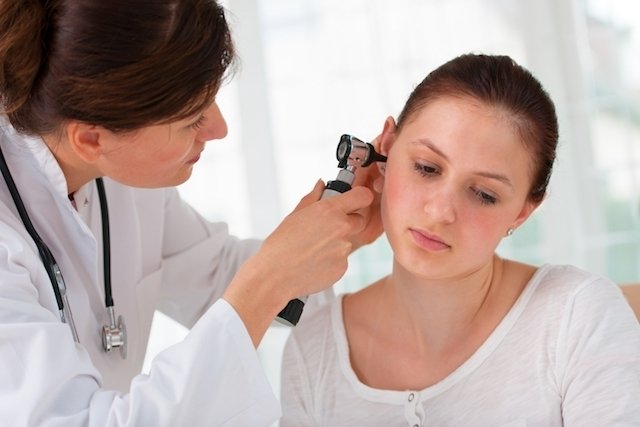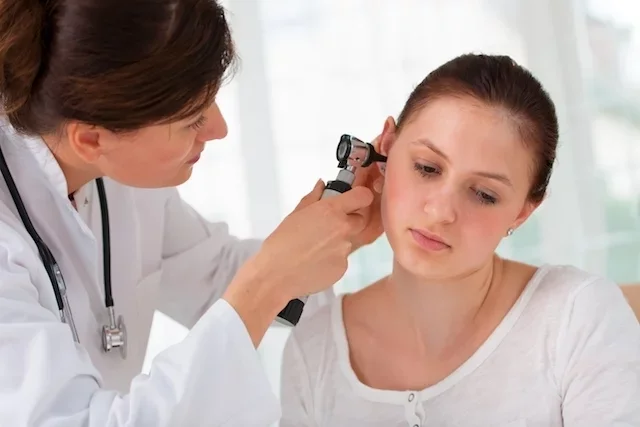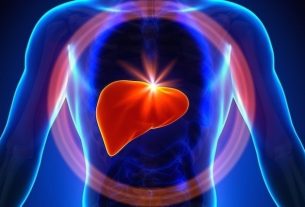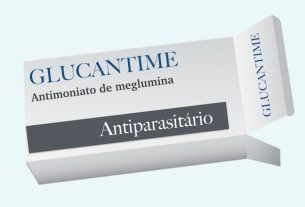There is a cure for labyrinthitis, depending on its cause and the correct treatment indicated by the doctor, which may involve the use of medicines such as promethazine or dimenhydrate, and the performance of physiotherapy exercises, for example.
Labyrinthitis is caused by inflammation of a part of the ear, called the labyrinth, usually due to infections caused by viruses or bacteria, such as flu, cold and otitis media. Understand better what labyrinthitis is.
Despite this, labyrinthitis is the term popularly used to describe any case of dizziness, and can be confused with benign paroxysmal positional vertigo (BPPV), vestibular neuritis, tumors, migraine and Meniére’s disease, for example.

4 ways to cure labyrinthitis faster
To cure labyrinthitis, the following may be recommended:
1. Use medications to control symptoms
Medications, such as diazepam, promethazine or dimenhydrate, may be indicated in cases of labyrinthitis to alleviate symptoms such as nausea and dizziness, and should be used according to the doctor’s instructions. Discover other remedies for labyrinthitis.
However, benzodiazepine and antihistamine medications are typically used for only a few days because they can make it difficult for the body to regain balance.
2. Treat illnesses that may have caused labyrinthitis
Treatment of diseases that may have caused labyrinthitis is important for symptoms to improve, and the use of antibiotics or corticosteroids may be indicated, for example, depending on the cause identified by the doctor.
3. Do vestibular rehabilitation exercises
Vestibular rehabilitation exercises are indicated especially in cases where labyrinthitis does not completely improve, with symptoms such as lack of balance, frequent falls and dizziness persisting.
Watch the video below and learn about some exercises that can relieve dizziness:
4. Natural treatment
Some natural options to complement your doctor-directed labyrinthitis treatment include:
- Eat an anti-inflammatory diet, rich in foods with omega-3 such as salmon, sardines or chia seeds, for example, and vegetables, as they are rich in antioxidants. Find out what the labyrinthitis diet is like;
- Drink Ginkgo Biloba teaas this plant improves blood circulation in the brain, which can alleviate symptoms of labyrinthitis such as dizziness and nausea;
- Do alternative therapiessuch as meditation and yoga, which help combat stress and anxiety, which can worsen labyrinthitis symptoms;
- Do acupuncturebecause the relief of symptoms such as dizziness and nausea is a possible benefit of this treatment.
Furthermore, in case of labyrinthitis it is important to avoid smoking, as smoke inhalation can also worsen symptoms and make recovery difficult.
Bibliography
- STATPEARLS. Acupuncture. 2022. Available at: <https://www.ncbi.nlm.nih.gov/books/NBK532287/>. Accessed on April 6, 2023
- XUE, Zhe et al. Efficacy and safety of acupuncture for chronic dizziness: study protocol for a randomized controlled trial. Trials. Vol.14. 429, 2013
- STATPEARLS. Labyrinthitis. 2022. Available at: <https://www.ncbi.nlm.nih.gov/books/NBK560506/>. Accessed on April 6, 2023
- DOMMARAJU, Sindhu; PERERA, Eshini. An approach to vertigo in general practice. Aust Fam Physician. Vol.45, n.4. 190-194, 2016
- SULWAY, Shaleen; WHITNEY, Susan L. Advances in Vestibular Rehabilitation. Adv Otorhinolaryng. Vol.82. 164-169, 2019
- Hallak, Bassel et al. Standardized Ginkgo Biloba Extract in the Treatment of Vertigo and/or Tinnitus: A Review of the Literature. Advances in Aging Research. Vol.11, n.2. 2021

Sign up for our newsletter and stay up to date with exclusive news
that can transform your routine!
Warning: Undefined array key "title" in /home/storelat/public_html/wp-content/plugins/link-whisper-premium/templates/frontend/related-posts.php on line 12
Warning: Undefined array key "title_tag" in /home/storelat/public_html/wp-content/plugins/link-whisper-premium/templates/frontend/related-posts.php on line 13





